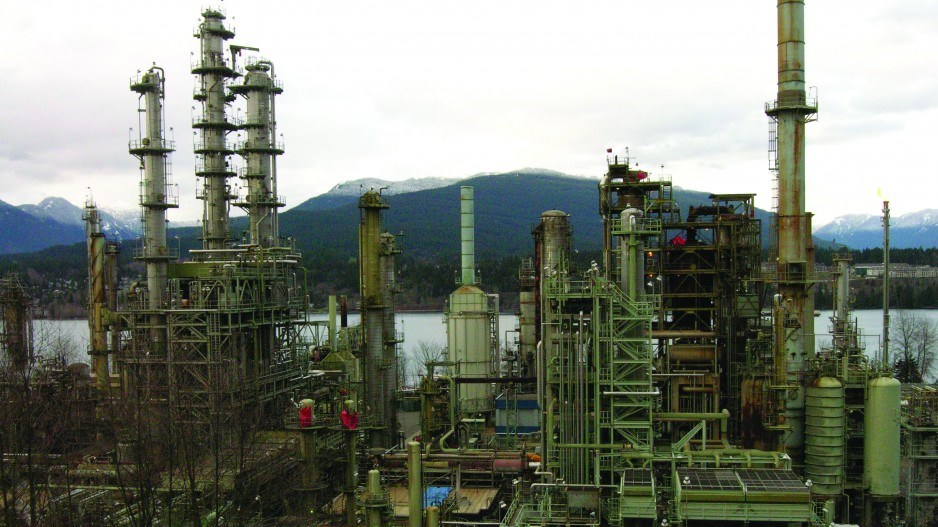Parkland Fuel Corp. (TSX:PKI) plans to invest $600 million to upgrade its refinery in Burnaby in order to scale up its production of biofuels, made from tallow and canola oil, for the making of biodiesel.
The expansion and upgrade will generate 1,000 construction jobs, and reduce greenhouse emissions from transportation by 2 million tonnes annually, according to the B.C. minister of Energy, Mines and Low Carbon Innovation.
Energy Minister Bruce Ralston said the investment is the direct result of B.C.’s low-carbon fuel standard, which was brought in more than 10 years ago.
The standard requires anyone selling gasoline and diesel in B.C. to include a blend of biofuels, which reduces the emissions intensity of gasoline, diesel and jet fuel.
As BIV News reported in 2019, Parkland Fuels began commercializing a process at its Burnaby refinery whereby oils – animal tallow and canola oil from West Coast Reduction’s rendering plant – were used to produce biofuels locally rather than import them from other countries.
The $600 million upgrade will boost the refinery’s production of biodiesel to 6,500 barrels per day. The expansion will make the Burnaby refiner the largest biodiesel producer in B.C., said Parkland Fuels CEO Bob Espey.
“We’ll accomplish this by expanding our existing co-processing capability to 5,500 barrels a day and building a stand-alone renewable diesel complex within the grounds of the Burnaby refinery capable of producing approximately 6,500 barrels per day of renewable diesel,” Espey said.
“The renewable fuels these projects will produce will have approximately one-eighth the carbon intensity of conventional fuels. To put this into perspective, this project will be the equivalent of taking over 700,000 cars off the road, or approximately one in four of B.C.’s passenger vehicles.”
Through its use of biofuels, Parkland Fuels has already earned $400 million in low carbon fuel compliance credits. Parkland says the credits will cover about 40% of the $600 million investment.
B.C.’s low carbon fuel standard is less visible than the carbon tax, but has proven to be one of the most effective tools for lowering fossil fuel emissions, Ralston said.
“The B.C. low carbon fuel standards is an incredibly successful program,” he said. “And it’s the single largest contributor to meeting our Clean BC targets, accounting for 31% -- or approximately one-third – of all reductions in the Clean BC Roadmap to 2030.”
To date, it has reduced emissions in B.C. by 12 million tonnes, Ralston said.
Ralston noted that the low carbon fuel standard has fostered new industries and processes in B.C., like Parkland’s new bio-refiner.
“There was no renewable fuel production in British Columbia before 2008, when the low carbon fuel standard was first introduced,” Ralston said.
“By 2020, 54 million litres of renewable fuel was produced right here in British Columbia. B.C.’s major fossil fuel suppliers are making significant investments to support and produce low carbon fuel.”
The Clean BC Roadmap sets a goal of 1.3 billion litres of renewable fuel capacity by 2030.
“Innovation and investments by fuel suppliers like Parkland will help us get there,” Ralston said.
Parkland’s refinery in Burnaby produces about one-quarter of B.C. gasoline, diesel and 30% of the jet fuel.




